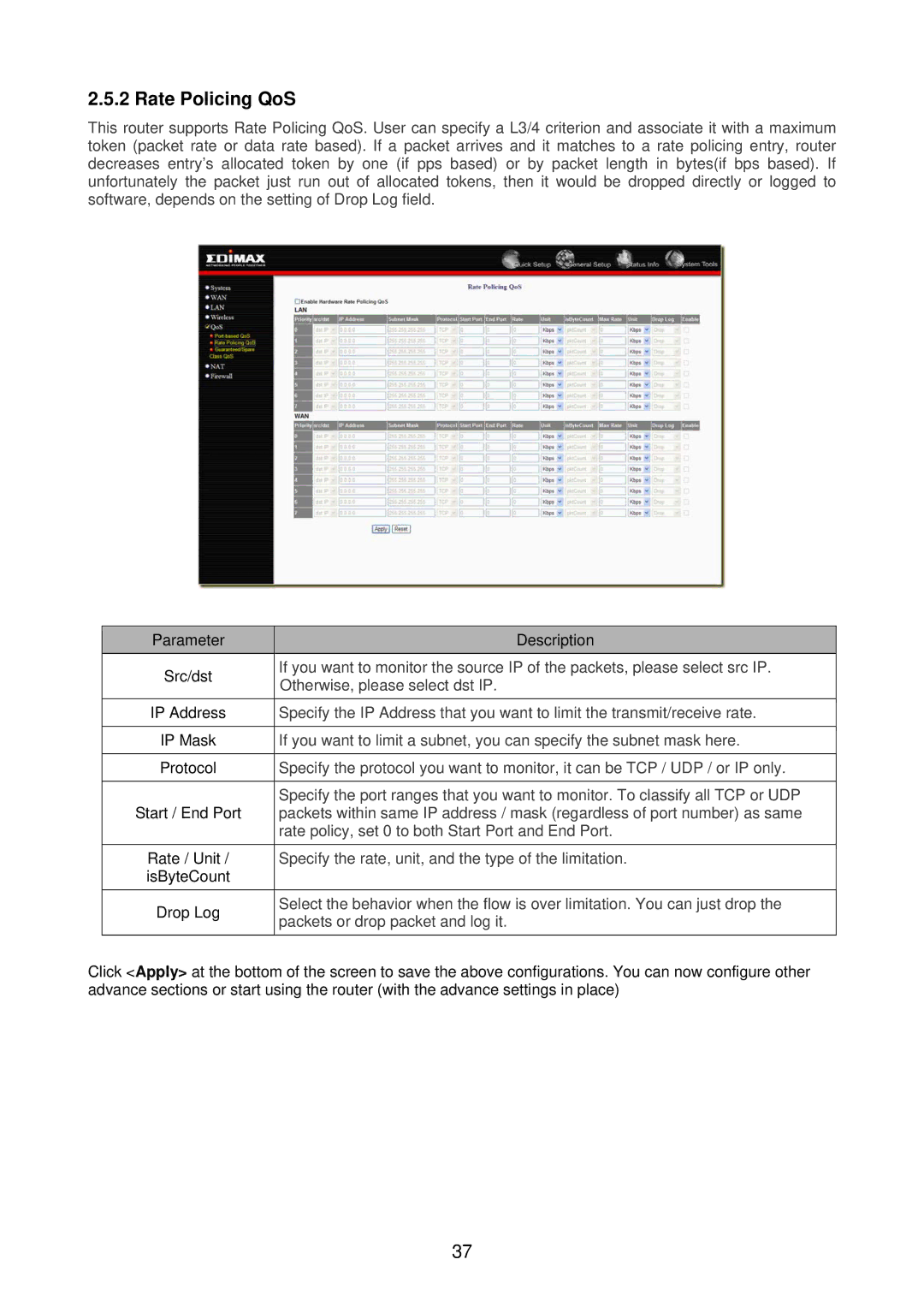
2.5.2 Rate Policing QoS
This router supports Rate Policing QoS. User can specify a L3/4 criterion and associate it with a maximum token (packet rate or data rate based). If a packet arrives and it matches to a rate policing entry, router decreases entry’s allocated token by one (if pps based) or by packet length in bytes(if bps based). If unfortunately the packet just run out of allocated tokens, then it would be dropped directly or logged to software, depends on the setting of Drop Log field.
| Parameter |
| Description |
| Src/dst |
| If you want to monitor the source IP of the packets, please select src IP. |
|
| Otherwise, please select dst IP. | |
|
|
| |
| IP Address |
| Specify the IP Address that you want to limit the transmit/receive rate. |
|
|
|
|
| IP Mask |
| If you want to limit a subnet, you can specify the subnet mask here. |
|
|
|
|
| Protocol |
| Specify the protocol you want to monitor, it can be TCP / UDP / or IP only. |
|
|
|
|
| Start / End Port |
| Specify the port ranges that you want to monitor. To classify all TCP or UDP |
|
| packets within same IP address / mask (regardless of port number) as same | |
|
|
| rate policy, set 0 to both Start Port and End Port. |
| Rate / Unit / |
| Specify the rate, unit, and the type of the limitation. |
| isByteCount |
|
|
| Drop Log |
| Select the behavior when the flow is over limitation. You can just drop the |
|
| packets or drop packet and log it. | |
|
|
|
Click <Apply> at the bottom of the screen to save the above configurations. You can now configure other advance sections or start using the router (with the advance settings in place)
37
